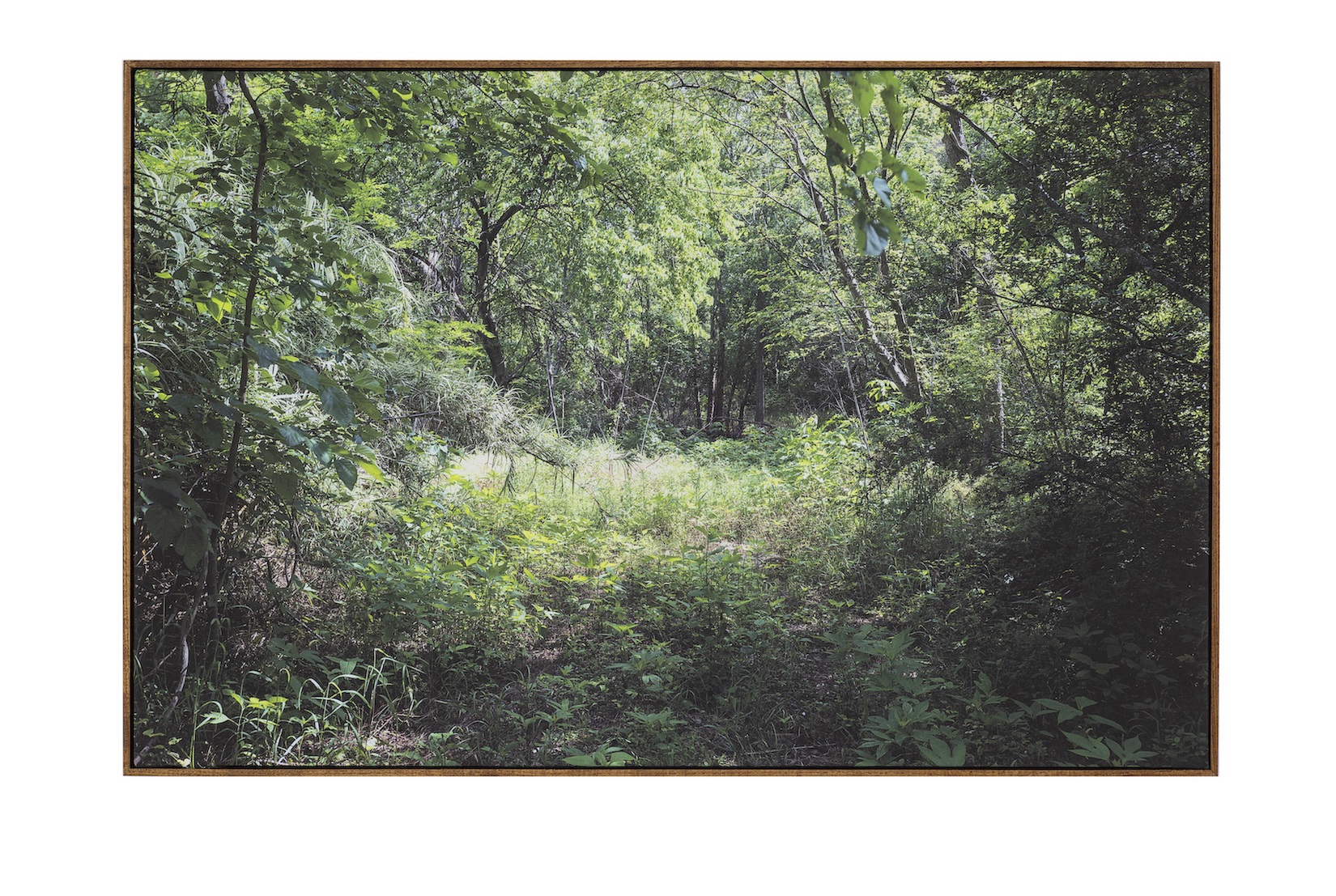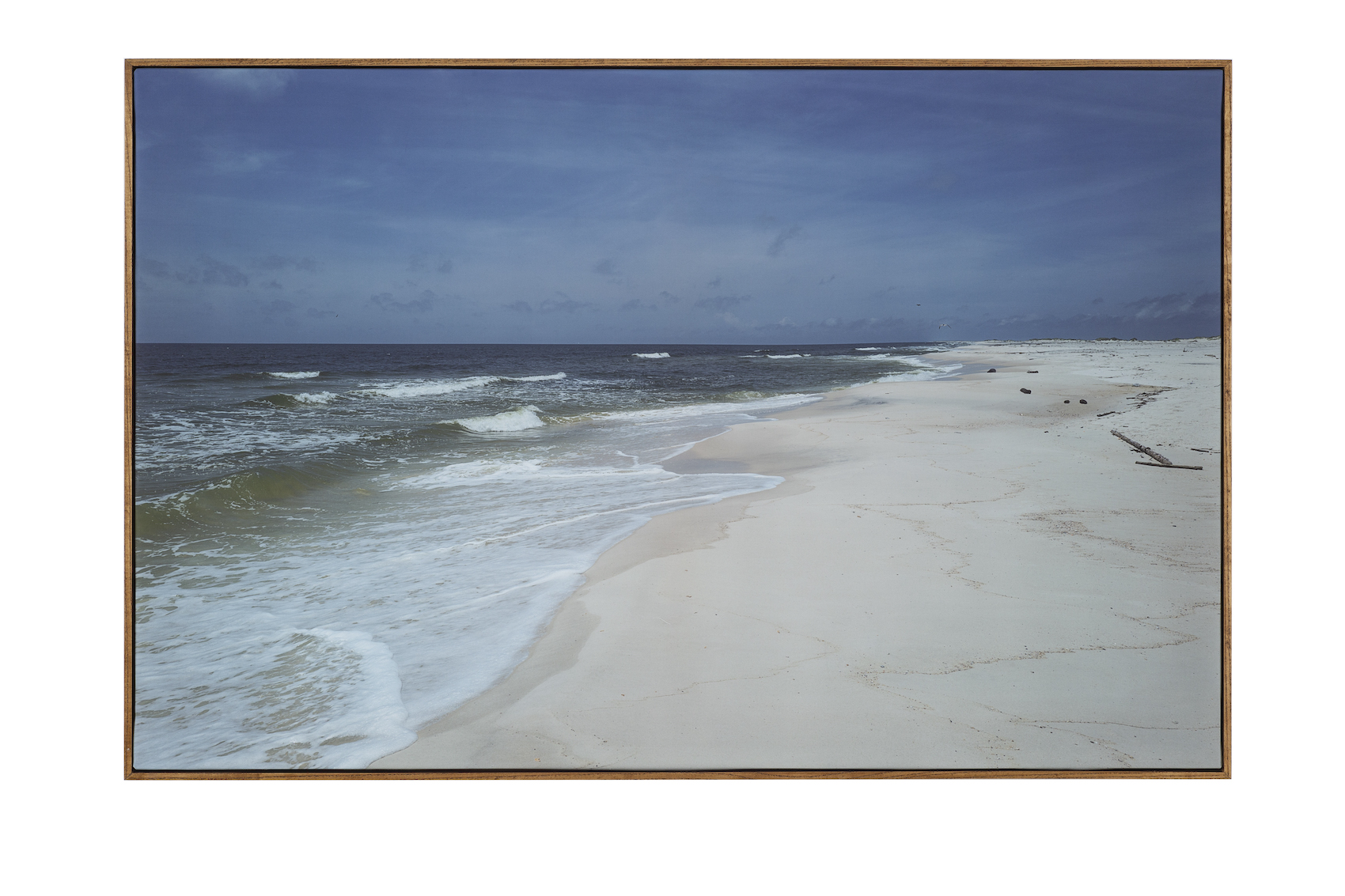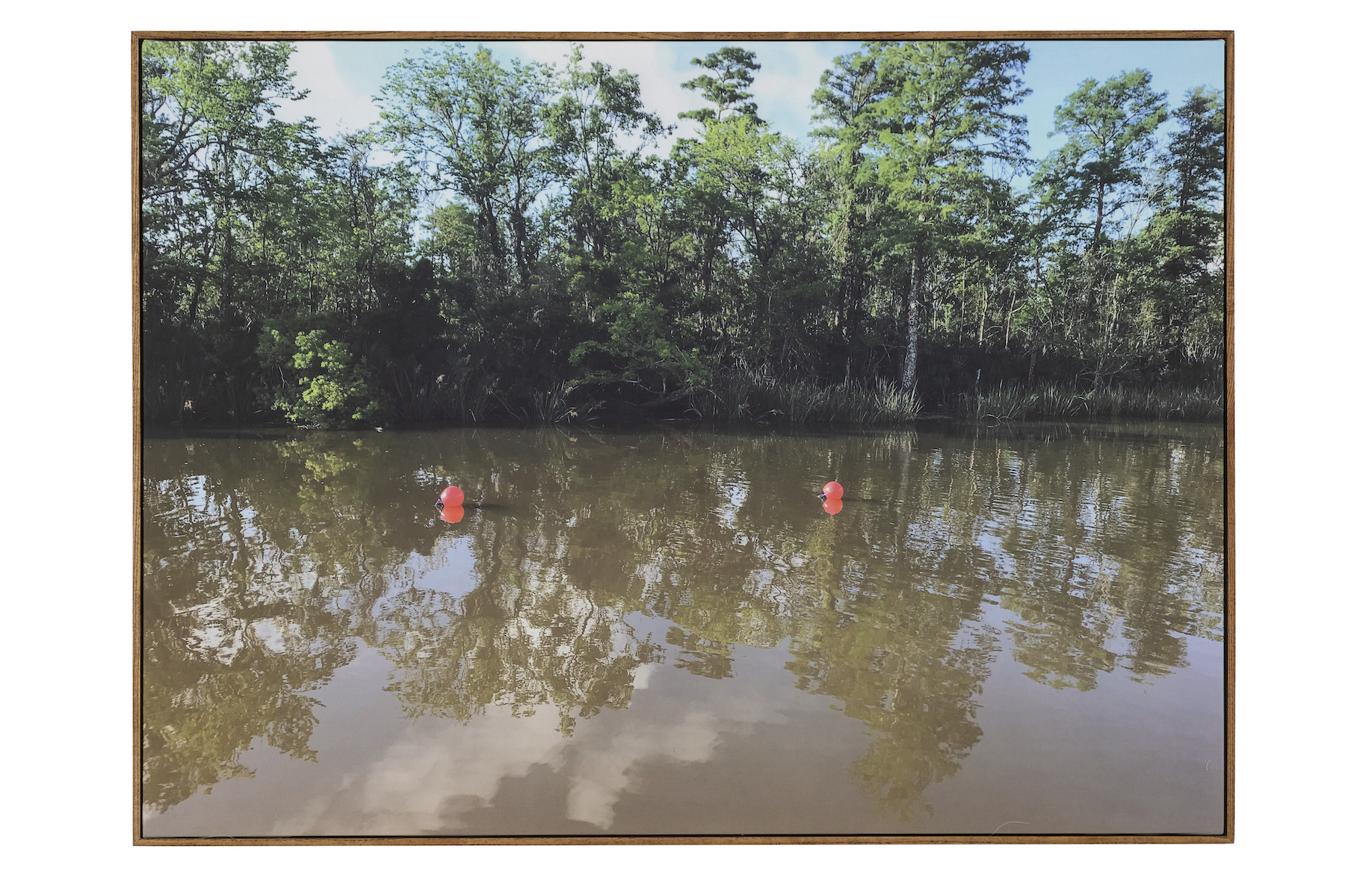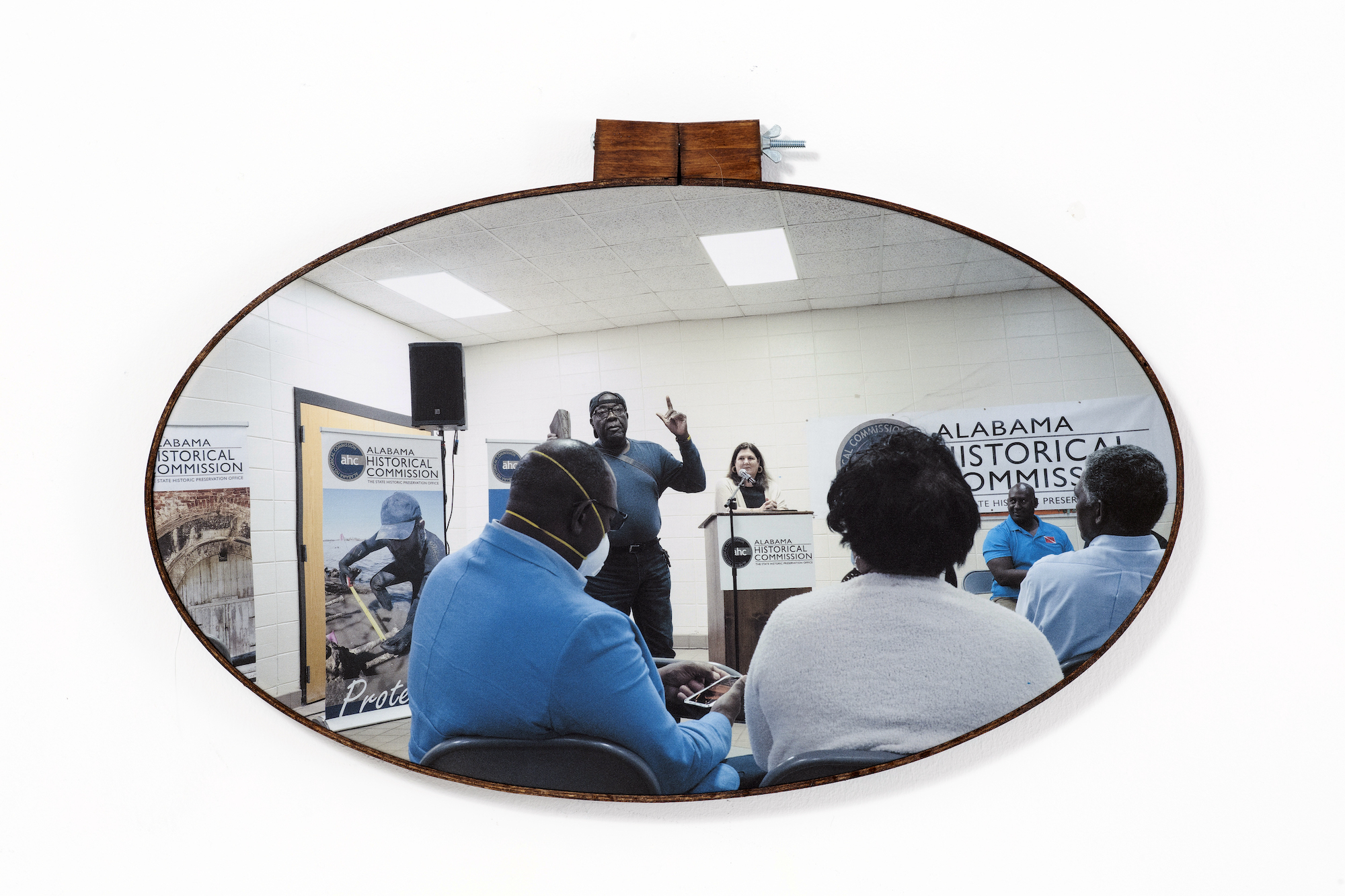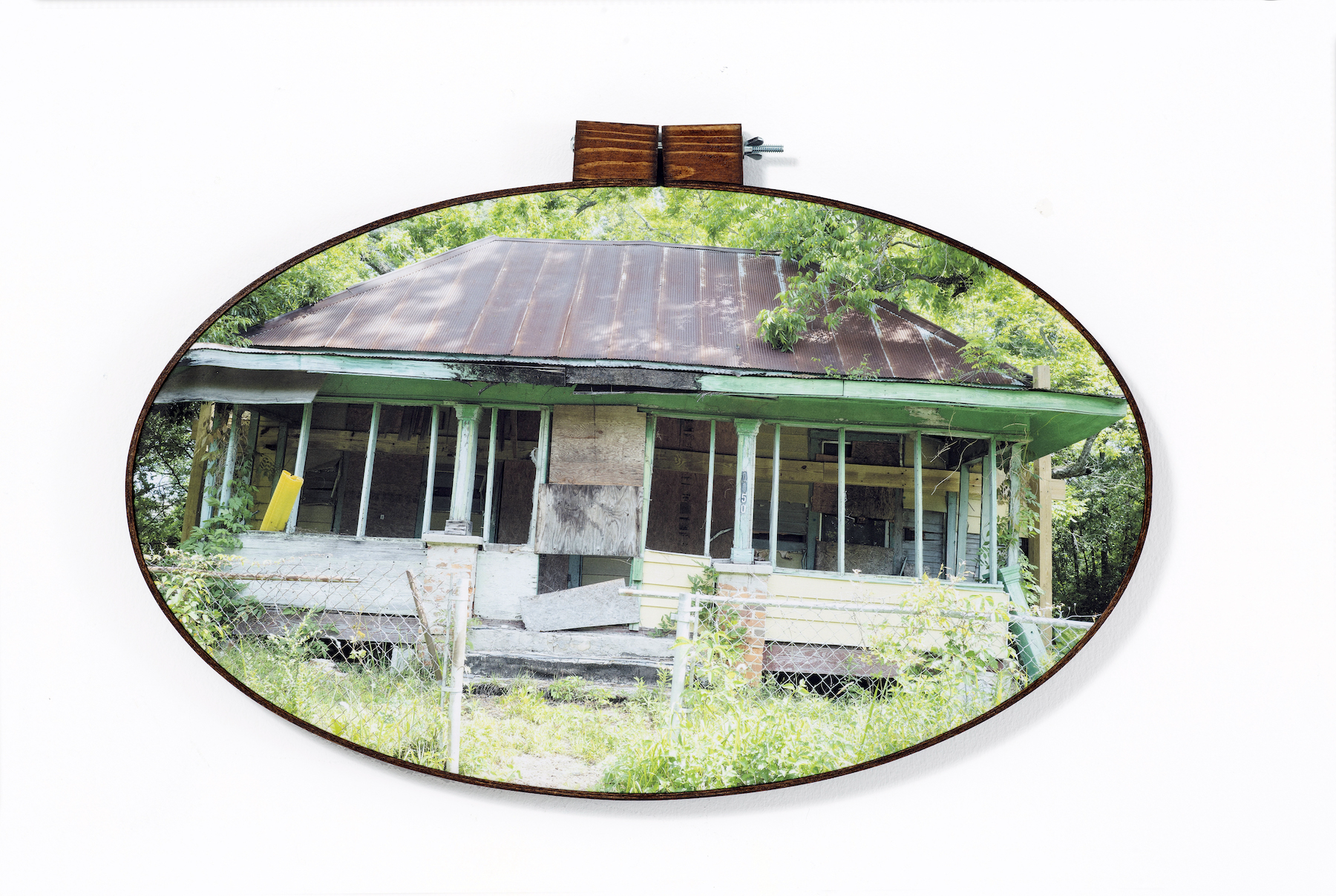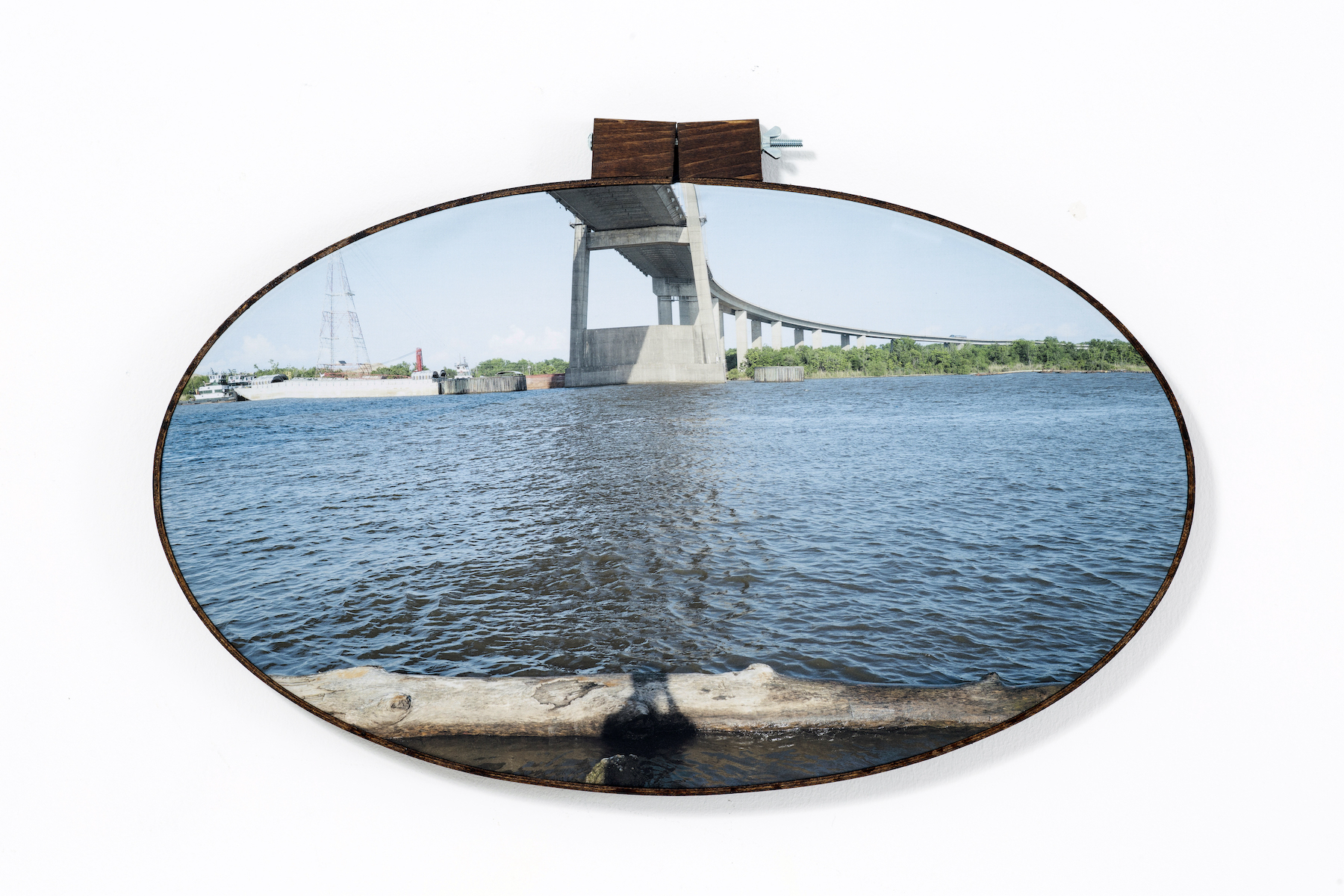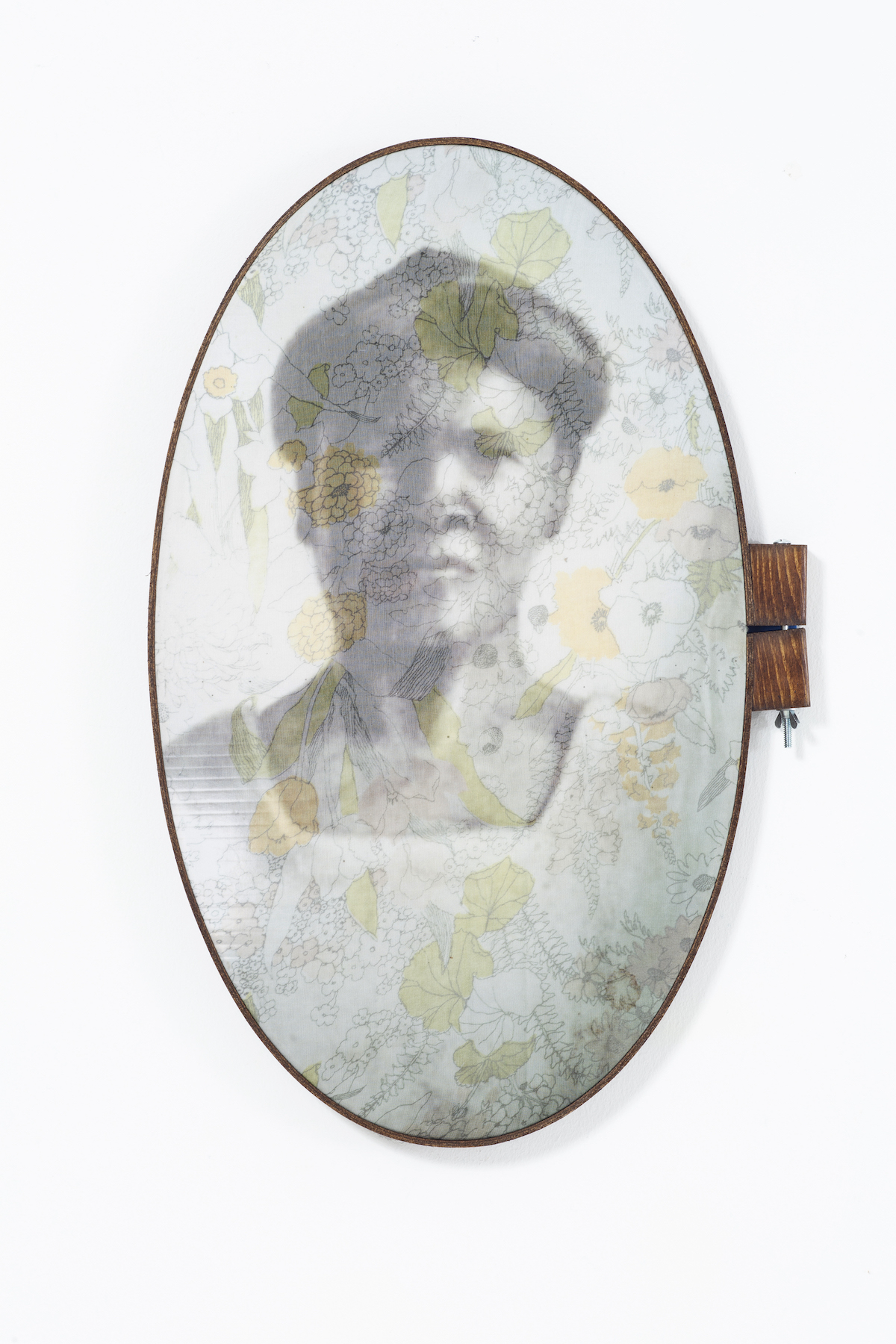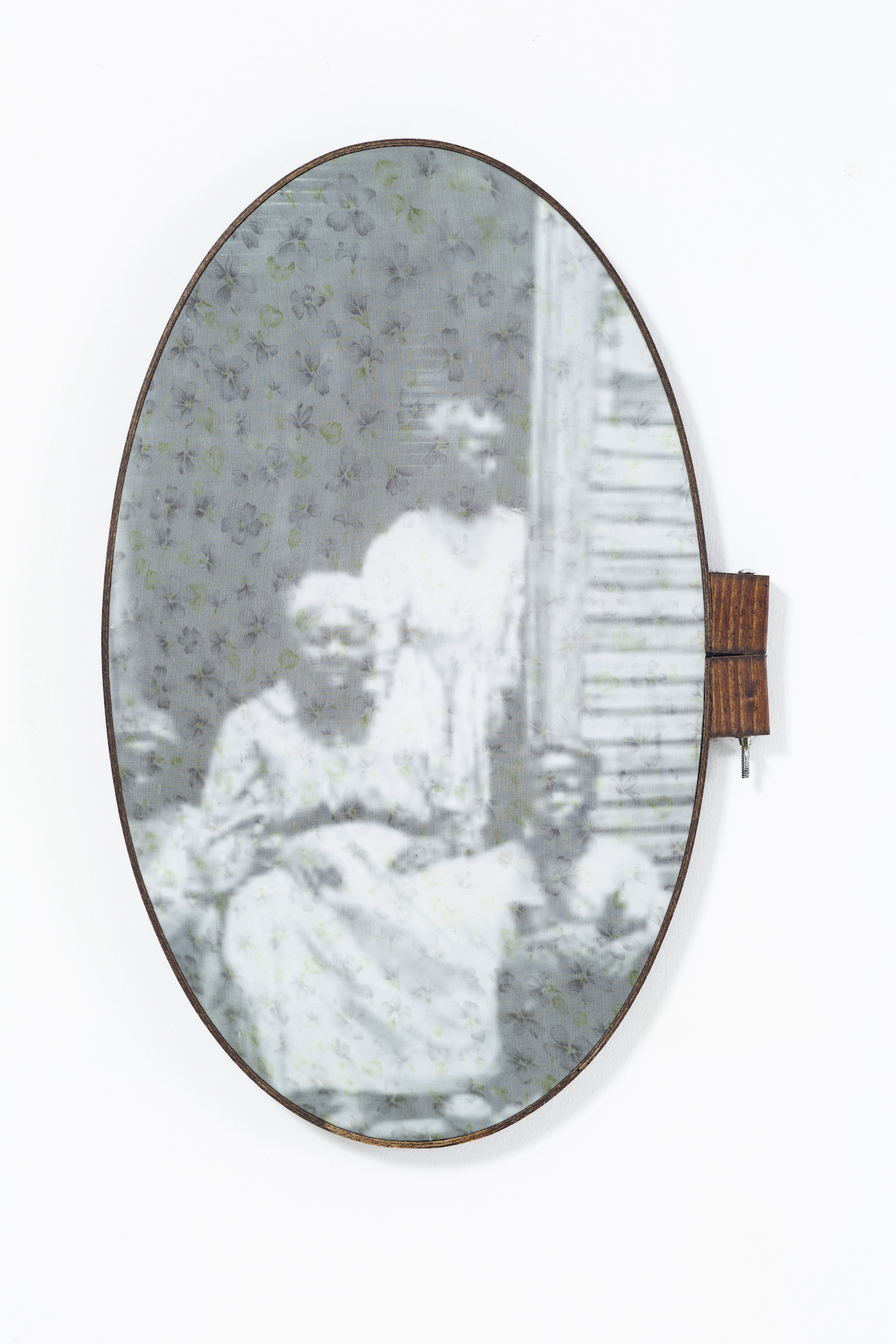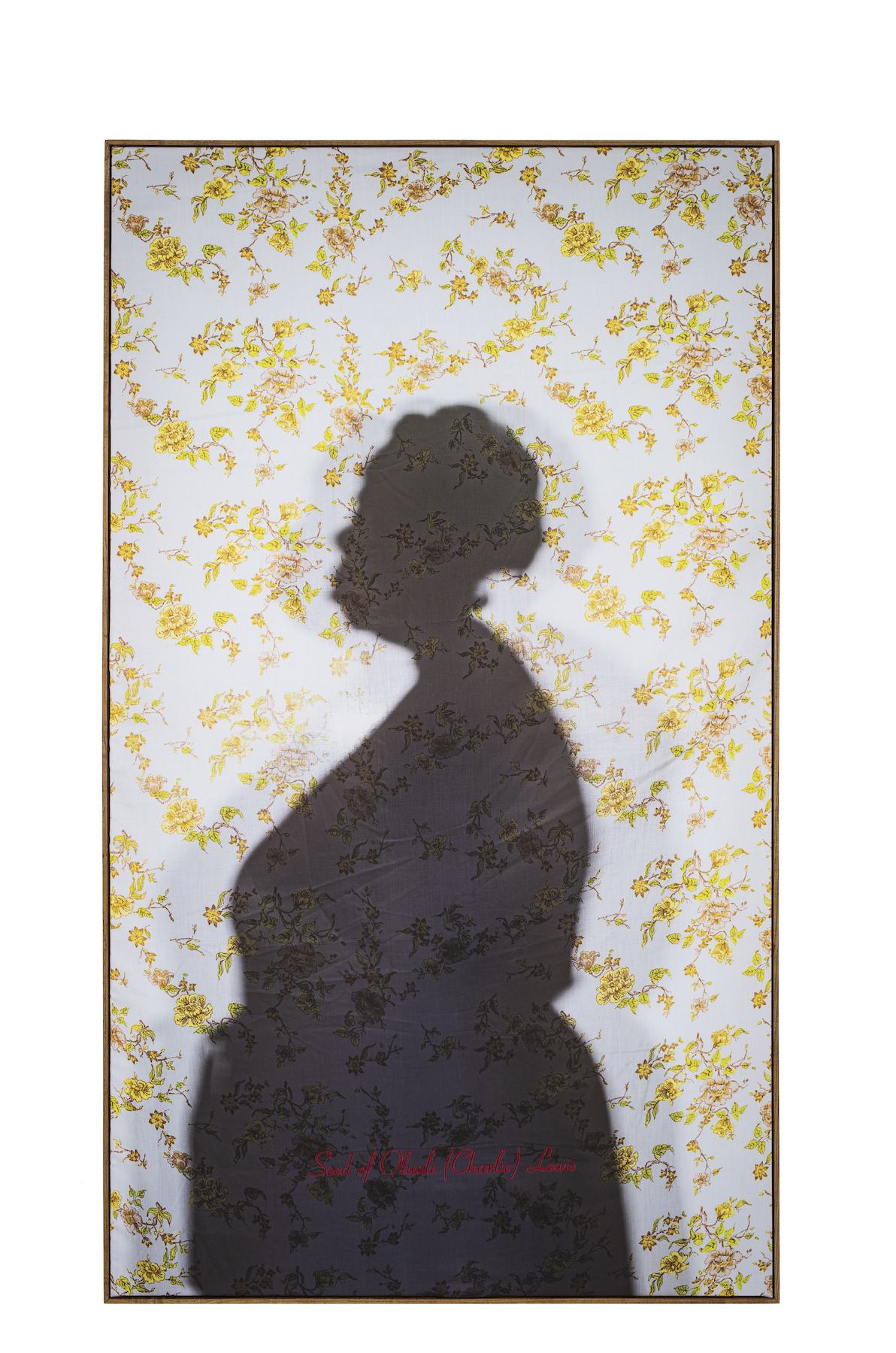Letitia Huckaby
Bitter Waters Sweet
Talley Dunn Gallery
May 6 – August 12, 2023
Bitter Waters Sweet is photographer and multimedia artist Letitia Huckaby’s carefully attentive and demonstrative contemplation of Africatown – its people, land, and history. Africatown in Alabama was founded by a group of West Africans from what is now Benin who had been trafficked on the last known U.S. slave ship, the Clotilda, five years before Emancipation and over half a century after the Atlantic slave trade had been outlawed. While official accounts failed to legitimize the community’s origins, over one hundred and fifty years later, their descendants have continued to keep the history of their ancestors alive from generation to generation. In Huckaby’s unique photographic works printed on cotton, the artist traces the threads of Africatown’s ancestors, their descendants, and their shared past and present, creating works of art that shine a light on the community’s history and the ways that legacy continues to be woven. Enveloping her subjects in both the language of adoring domesticity and a grandness harkening back to European portraiture, Huckaby looks beyond the veil to wade in waters once bitter, made sweet.
Inspired by her own family history in Louisiana, Huckaby developed an interest in freedmen’s towns across the American South and into Texas and Oklahoma as seen in her earlier work. Given this longstanding interest, Africatown’s own story and its relationship to the waters of Mobile Bay and the Mobile River intrigued the artist. Huckaby’s waterscapes in this body of work follow the Clotilda’s clandestine path in 1860 into Mobile Bay and up the river where the ship unloaded 110 young women and men in the shadows of darkness. While the women and men were hidden in the brush of the swampy river, the ship was burned by its owners and sunk in order to destroy the evidence of their illegal importation of slaves to the United States. These captured men and women from Africa were kept hidden in the marshes until they were divided among three different plantations as slaves. The exact location of the burned and sunken slave ship was lost to history until the wreckage was found in 2018. While the discovery of the Clotilda offers a material evidence of Africatown’s history, Huckaby’s work considers the weight and importance of that which already was. The artist’s photographs document the provisions and dangers of water and land in their antinomies, abundance, and giving of life. Vast expanses of ocean intimate both terrifying histories and the prospect of hope latent in the water itself and the thick canopies of vegetation luminesce in the sun while bestowing layers of shade and feelings of legacy. In this vein, Huckaby embroiders the portraits of the descendants of the survivors of the Clotilda with their thriving lineage, naming them as seeds such as “Seed of Lottie Dennison” or “Seed of Peter Lee.”
Included in the exhibition are images of Africatown’s ancestors overlaid with floral bedsheet designs and printed onto cotton fabric which are then framed in embroidery hoops. The motif of domesticity signaled in the use of charmingly quaint bedding and wooden hoops is echoed in the large-scale silhouette portraits of the descendants whose forms are also recorded through floral bed sheets and framed in thin bands of wood. The artist describes how in drawing from visual cultures of the home she is following in the tradition of women who make and create places of belonging in their precious displays of and for loved ones. In this making of place, the artist also contends with its challenges especially as they present themselves in communities that must overcome generations of inequity. Images of an abandoned home and stairs that lead nowhere subvert our expectations for what we imagine embroidery hoops to contain. Throughout Huckaby’s images is a certain quality of light that emanates from each person and place. It’s a light that expresses the intimately connected and embodied ways Africatown’s history is kept alive in its water, land, and people.
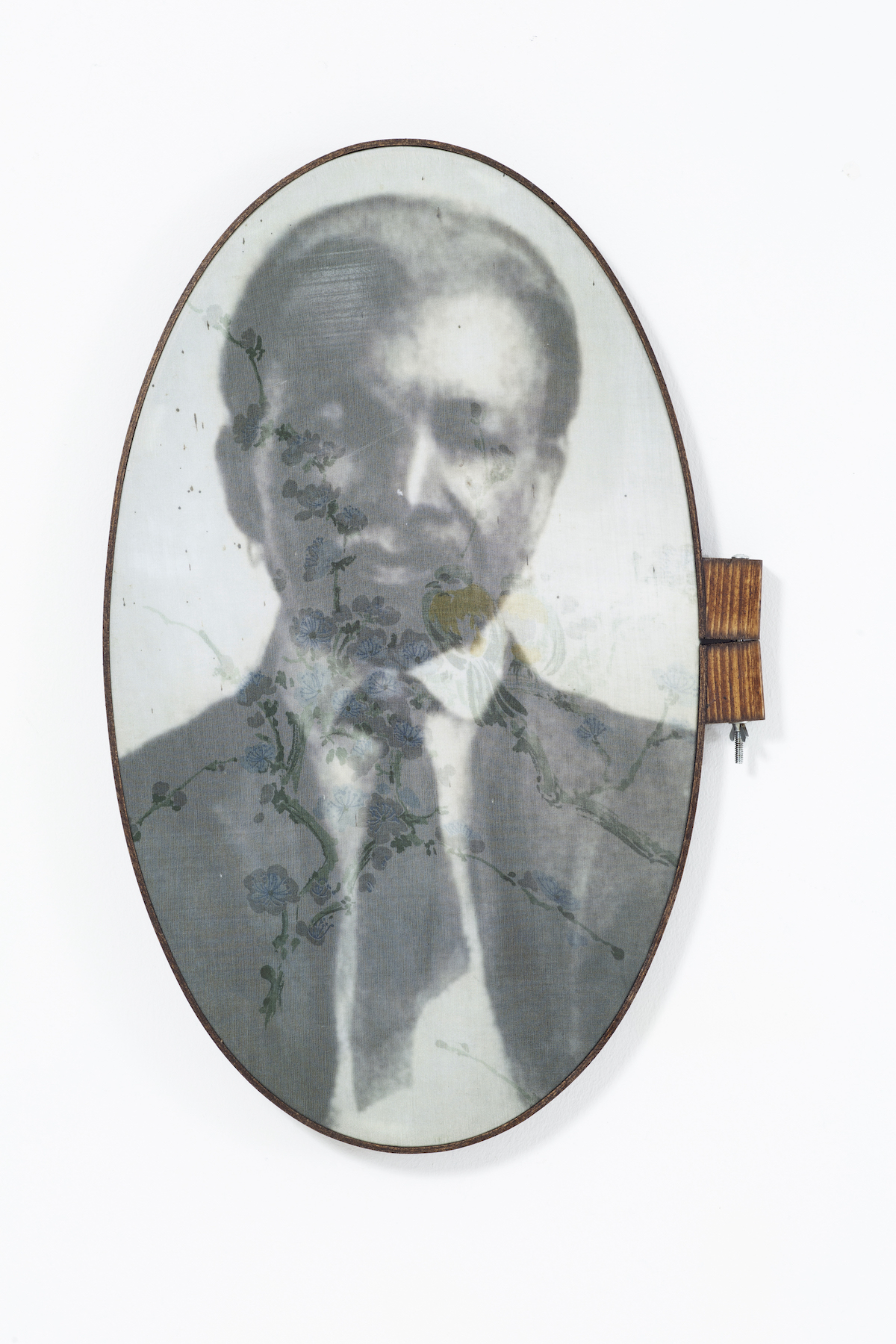
Watch this in depth exhibition walk-through and interview with Letitia Huckaby on Bitter Waters Sweet.
Letitia Huckaby has a degree in Journalism from the University of Oklahoma, a BFA from the Art Institute of Boston in photography, and her Master’s degree from the University of North Texas in Denton.
Her work is featured in the 2023 exhibition Emancipation: The Unfinished Project of Liberation, organized by Amon Carter Museum of American Art and Williams College. On view during the 160th anniversary of the Emancipation Proclamation, Emancipation visualizes what freedom looks like for Black Americans today and the legacy of the Civil War in 2023 and beyond. Most recently, Letitia Huckaby was awarded 2022 Texas Artist of the Year with an exhibition of her recent work Bitter Waters Sweet at Art League Houston, along with a publication. This critical body of work explores the legacy of Africatown, the historic community near Mobile, Alabama, its West-African founders, and their descendants, along with the history of the ship that trafficked them to the States in 1860, the Clotilda. In 2020, Huckaby was a Fall 2020 Artist in Residence at ArtPace, where her she debuted And Thy Neighb(our), a series that portrays Black refugees and immigrants from across the diaspora in the vein of Old Master paintings.
Letitia Huckaby has exhibited at Phillips New York, the Tyler Museum of Art, The Studio School of Harlem, the Camden Palace Hotel in Cork City, Ireland, and the Texas Biennial at Blue Star Contemporary Art Museum. Her work is included in several prestigious collections such as the Library of Congress, the McNay Art Museum, the Art Museum of Southeast Texas, and the Samella Lewis Contemporary Art Collection at Scripps College in Claremont, California. Huckaby was a featured artist in MAP2020: The Further We Roll, The More We Gain at the Amon Carter Museum and State of the Art 2020 at The Momentary and Crystal Bridges Museum, which opened in the spring of 2020.

